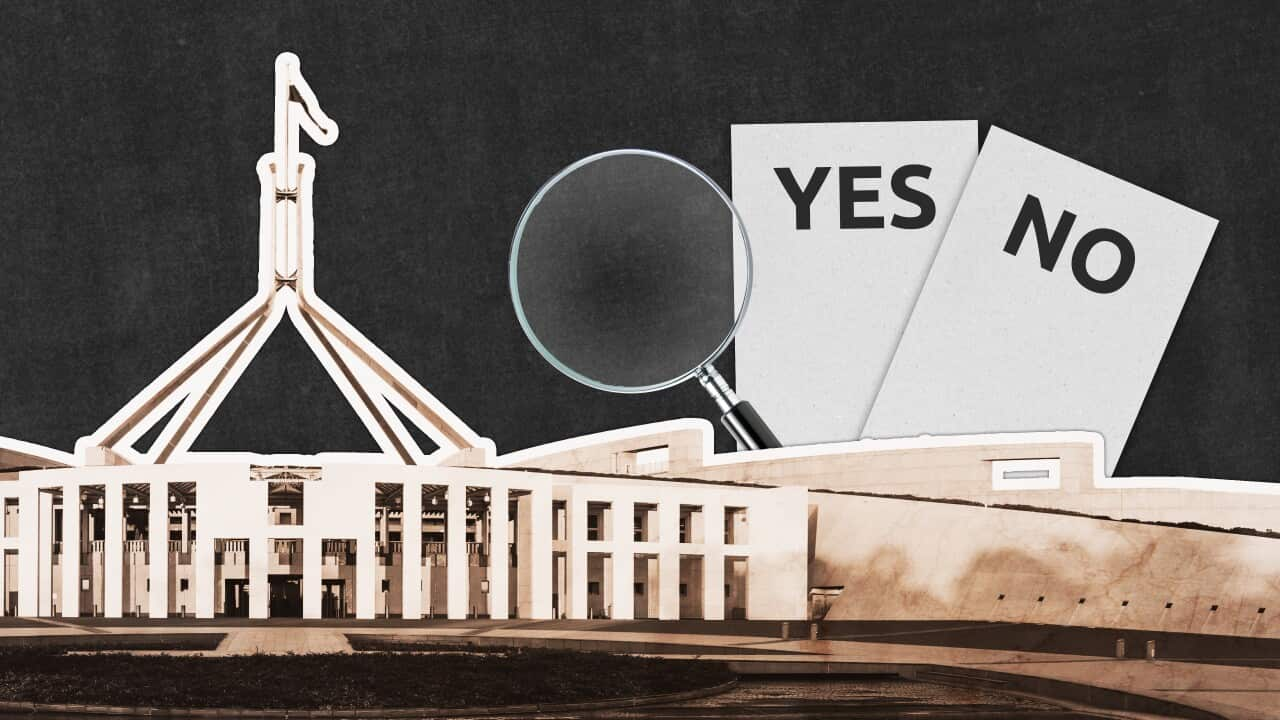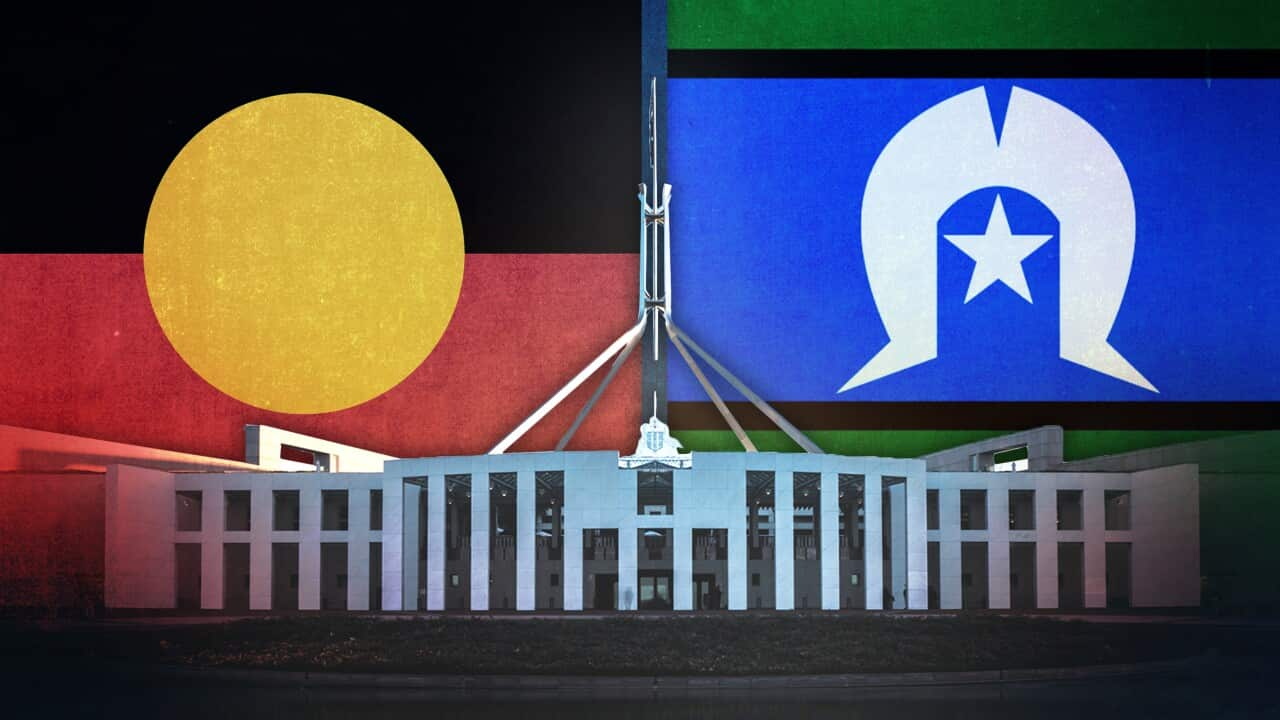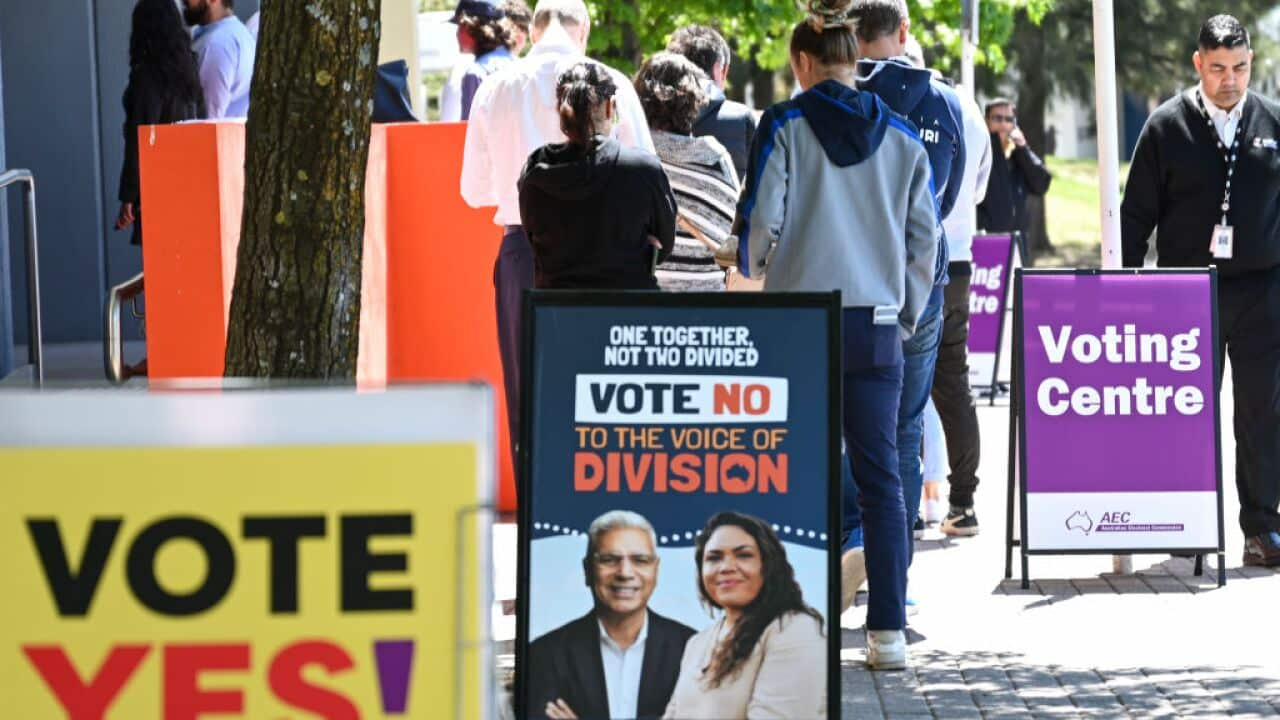Blaming Indigenous people for not closing the gap with non-Indigenous people could be legitimate if they get a say in decision-making.
That suggestion is part of Noel Pearson's latest bid to rally support for an Indigenous Voice to federal parliament, set to be voted on in the last quarter of this year.
The Indigenous lawyer and academic told a Brisbane audience he had been advocating for two decades for self-determination and "our right to take responsibility".
Governments exerted substantial control over Aboriginal and Torres Strait Islander lives, stifling individual choice and also markets, he said.
"Although sometimes well-intentioned, it creates problems, causes dependency and undermines ... development," he said as part of the Queensland University of Technology's Meanjin oration.
That development was required to bring about fundamental changes to overcome the powerless disadvantage, which is primary to the inequality gap with non-Indigenous people.
'Blame us, but give us a say'
"We have to get to a point where it is legitimate to blame us," Pearson said.
"By all means, blame us - but give us a say in the decisions that are made about us before you do.
"This is the message of the voice - by having a voice, we will be responsible for closing the gap."
The Cape York community leader also called for voters to separate the referendum issue from messages coming out of their "political tribes", telling Liberal voters there was no reason they couldn't vote Yes.
Polling suggests support for the Yes vote is softer in coalition heartland states of Queensland and Western Australia.
While Labor supports the voice being enshrined in the constitution, Liberal and National MPs at federal and state levels are split between a federally constituted federal Voice, legislated local and regional Voices or nothing at all.
If added to the federal constitution, the Voice could be modified by the parliament of the day but not abolished.
NSW Opposition leader Mark Speakman signalled his support for the Yes campaign over the weekend, drawing criticism from deputy federal Liberal leader and NSW resident Sussan Ley.
Australians are expected to vote in the referendum later this year, with the prime minister signalling the formal start of the ballot process within weeks.
To succeed, the Yes campaign will require more than 50 per cent of the vote across the nation and in four of the six states.













